Until Liberation II: Learning Palestine
As part of the series ‘Towards Collective Study in Times of Emergency’ L’Internationale Online shares the second of two twelve hour listening sessions by the Learning Palestine Group. Comprising lectures, interviews, book presentation, talks, storytelling, music, songs, poetry and chants sourced online, the material weaves together times, struggles and sounds from the 1950s to today. Below is an introduction from Learning Palestine Group followed by the time codes for the excerpts. Enjoy listening.
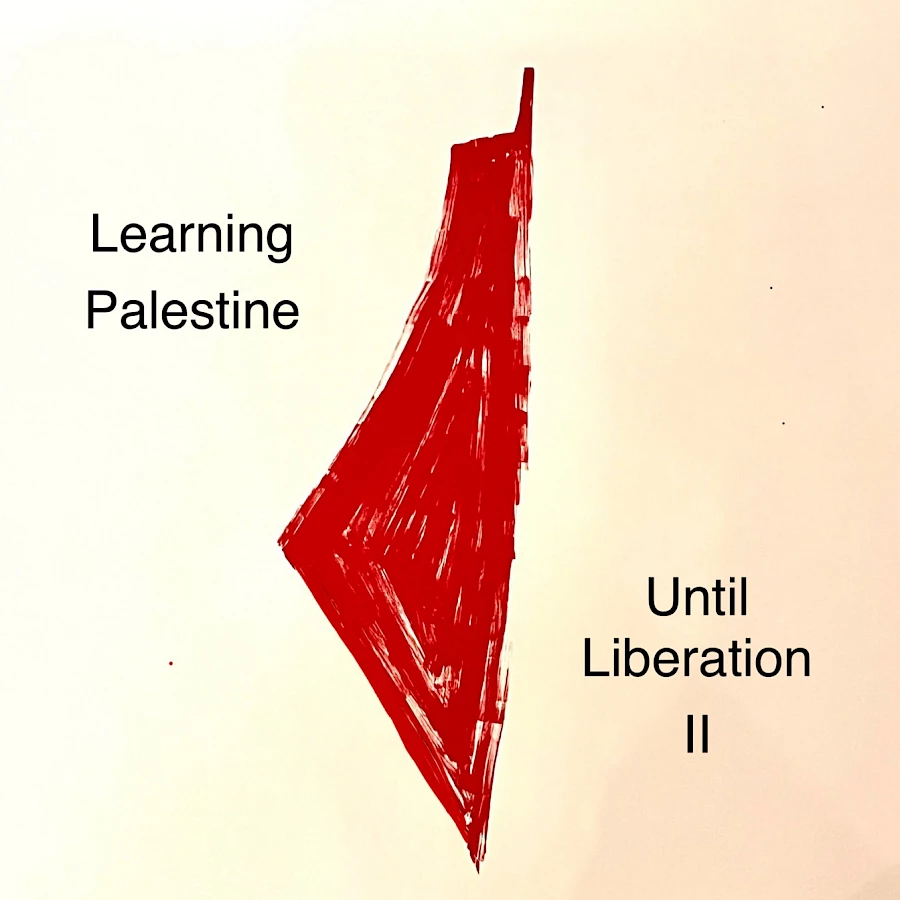
Courtesy Learning Palestine Group.
Dear listeners, friends, comrades in this world,
This is the second iteration of the twelve-hour programme of Learning Palestine.
As genocide unfolds before our eyes, language falls short, it becomes obsolete and helpless.
Yet we need to continue exploring ways of speaking out and organizing against the grain, against this overdose of destruction and annihilation of life, against warmongering and militarisation, against attempts to silence and immobilize us.
And so we return to what has been said and spoken before us to comprehend the history that precedes and informs the current political moment.
We return to the struggles that we belong to and find our roots in, from Algeria to Abya Yala, from South Africa to Asia and back to Palestine.
Despite the differences in our struggles, Palestine remains an embodiment and extension of these and other struggles for life and liberation, against racism, colonialism, imperialism and rising fascism.
In this programme we share lectures, talks, teach-ins as well as poems, music, and chants in the hopes of expanding our political horizons and engagements through study and struggle. To imagine ways of acting together, to tear apart the walls and borders that separate us, for a life in freedom, justice and dignity for all.
Learning Palestine Group
Timecodes:
00:00:00 Introduction, Learning Palestine Group: Until Liberation II
00:02:00 A song: Me, My Brother, live recording (date unknown)
00:03:30 A poem: Gaza Suite 1, Suheir Hammad, live recording (Palestine Festival of Literature, 2010)
00:07:14 Film soundtrack: Kufia: A Revolution Through Music, Dr Louis Brehony (2021)
00:37:00 A talk: Hassan Balawi, “Soutiens diplomatiques et réseaux de solidarité croisés avant et après 1962” (French, Paris, 22 June, 2023)
01:02:00 A song: Oh! De Gaule, Djaafar Beck (1960)
01:06:10 An interview: Angela Davis, “Black liberation and Palestinian solidarity” (Democracy Now, 2020)
01:11:00 A song: Palestinian wedding, live recording (date unknown)
01:17:50 A talk: Malika Rahal, “Algérie-Palestine: comment ne pas comparer?” (French, Paris, 22 June, 2023)
01:45:40 A song: Letter to Djamila Bouhired, Fairouz (1959)
01:51:40 History lesson: “The Algerian War for Independence” (Revolution and Ideology, 2021)
02:07:30 A song: Ya Taleein il Jabal, Emel Mahtlouthi (date unknown)
02:09:40 A video: Untitled Part 1: Everything and Nothing, Souha Bechara (Arabic, 1999)
02:50:20 A song: Sarkhet Thaer, Marcel Khalife
02:54:20 A talk: Olivier Hadouchi, “Le cinéma militant et les révolutions anticoloniales arabes” (French, Paris 22 June, 2023)
03:03:50 A chant: Football fans chanting in support of Palestine (Cairo, 2023)
03:04:10 A video: Edward Said on Frantz Fanon, from the BBC documentary “The Idea of Empire” (1993)
03:09:30 A song: Palestine, Nass El Ghiwane (1998)
03:15:50 Reading: Il y a 49 ans..Le mossad assassinait l'algérien Mohamed Boudia (French, al24news, 2023)
03:17:41 A song: Ya Helwa Ciao!, Mohammad Ghaznavian (date unknown)
03:20:03 A lecture: Vijay Prashad, “Palestine the Global South and Reacting to the Neoliberal Present” (Wiliams College, Mass., 2016)
04:35:48 A poem: We teach life sir, Rafeef Ziadah, live recording (London, 2011)
04:40:05 A song: The Sea, Sabreen (2000)
04:46:24 Film soundtrack: Scenes of the Occupation from Gaza, Mustafa Abu Ali (Arabic, 1973)
04:59:36 A lecture: Eugène Puryear, “An Intervention on Gaza 2023” (13 October 2023)
05:04:09 A song: Intifada, Ska-p (2009)
05:08:03 A song: Yal Menfi, Akli Yahyaten (1965)
05:11:00 A conversation: Edward Said and Salman Rushdie (1986)
06:38:34 A song: Rossa Palestina, Italian Communist Pro-Palestinian song written by Umberto Fiori (1973)
06:40:50 History lesson: “Ghassan Kanafani and the era of revolutionary Palestinian media” (Al Jazeera, 2020)
06:49:55 Noam Chomsky, “Why Does the US Support Israel?” (2016)
06:57:00 A song: Tal Al Zaatar Chant (date unknown)
07:02:00 Discussion: “Palestinian universities under occupation”, Mezna Qato and Roger Heacock (UCL, London, 2018)
07:35:30 Live recording: A wedding in the village of Ya’bod (1991)
07:38:40 An interview: The Myth of Israel, Ilan Pappé (2023)
07:53:00 A song: Ya Falastiniyah, Sheikh Imam (1985)
07:57:20 A chant: Ya Falastiniyah in the streets of Tunis (date unknown)
08:01:30 A poem and song: Ya Falastiniyah, Amin Haddad and Eskenderella
08:06:40 A song: Ya Falastiniyeh, Sheikh Imam, live recording (Beirut, 1984)
08:14:11 A lecture: Shahd Hammuri, “From Allende to Gaza: Claiming the Agency of the People” (Framer Framed, Amsterdam, 14 October 2023)
08:51:20 A poem: Al Bashiq, part 5, performed by Amer Hlehel and Faraj Sulieman (Arabic)
09:01:30 A song: A Patriotic Song, Sabreen in Jerusalem (1990)
09:10:00 Teach-in: Linda Quiquivix, “Contextualizing Palestine within the Genocidal World of 1492” (Los Angeles, 15 October, 2023)
10:11:20 A song: Gaza Mixtape, Checkpoint 303 (released 7 October 2023)
10:18:30 Talk: “Munir Fasheh in Palestine: Reimagining Solidarity, A Conference of Butterflies” (16 Beaver Group, 23 May 2021)
11:15:20 A song: Song of Tunisian revolution in the streets, inspired by Palestinian song
11:17:40 A lecture: “Inside Israel’s surveillance machine”, The Listening Post (2023)
11:42:48 A reading: A Map of Parallel Worlds Between Algeria and Palestine, by Lina Soualem, read by Reem Shilleh (2023)
11:54:50 A song: Al Daw, Maya Khaldi and Sarona (2021)
Listen to Until Liberation I: Learning Palestine here.
Related activities
-
–Van Abbemuseum
The Soils Project
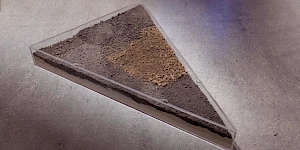
‘The Soils Project’ is part of an eponymous, long-term research initiative involving TarraWarra Museum of Art (Wurundjeri Country, Australia), the Van Abbemuseum (Eindhoven, Netherlands) and Struggles for Sovereignty, a collective based in Yogyakarta, Indonesia. It works through specific and situated practices that consider soil, as both metaphor and matter.
Seeking and facilitating opportunities to listen to diverse voices and perspectives around notions of caring for land, soil and sovereign territories, the project has been in development since 2018. An international collaboration between three organisations, and several artists, curators, writers and activists, it has manifested in various iterations over several years. The group exhibition ‘Soils’ at the Van Abbemuseum is part of Museum of the Commons. -
–VCRC
Kyiv Biennial 2023
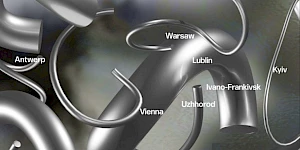
L’Internationale Confederation is a proud partner of this year’s edition of Kyiv Biennial.
-
–MACBA
Where are the Oases?
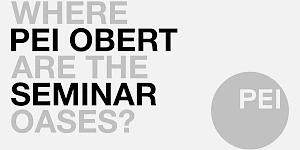
PEI OBERT seminar
with Kader Attia, Elvira Dyangani Ose, Max Jorge Hinderer Cruz, Emily Jacir, Achille Mbembe, Sarah Nuttall and Françoise VergèsAn oasis is the potential for life in an adverse environment.
-
MACBA
Anti-imperialism in the 20th century and anti-imperialism today: similarities and differences
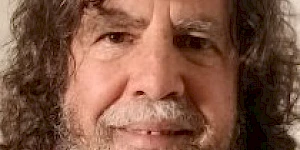
PEI OBERT seminar
Lecture by Ramón GrosfoguelIn 1956, countries that were fighting colonialism by freeing themselves from both capitalism and communism dreamed of a third path, one that did not align with or bend to the politics dictated by Washington or Moscow. They held their first conference in Bandung, Indonesia.
-
Institute of Radical ImaginationMuseo Reina Sofia
Cinema as Assembly
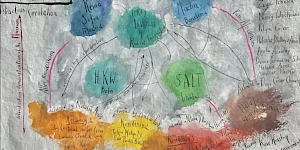
Cinema as Assembly investigates cinema as a space of social gathering and political engagement that prefigures and enacts forms of living beyond colonial capitalism.
-
21 Jun 2023 –6 Jul Van AbbemuseumMaria Lugones Decolonial Summer School
Recalling Earth: Decoloniality and Demodernity
Course Directors: Prof. Walter Mignolo & Dr. Rolando VázquezRecalling Earth and learning worlds and worlds-making will be the topic of chapter 14th of the María Lugones Summer School that will take place at the Van Abbemuseum in Eindhoven.
-
23 Apr 2023 –30 Sep 2024 MSNArchive of the Conceptual Art of Odesa in the 1980s
The research project turns to the beginning of 1980s, when conceptual art circle emerged in Odesa, Ukraine. Artists worked independently and in collaborations creating the first examples of performances, paradoxical objects and drawings.
-
24 Aug 2024 –30 Aug Moderna galerijaZRC SAZUSummer School: Our Many Easts
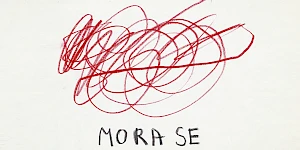
Our Many Easts summer school is organised by Moderna galerija in Ljubljana in partnership with ZRC SAZU (the Research Centre of the Slovenian Academy of Sciences and Arts) as part of the L’Internationale project Museum of the Commons.
-
15 Feb 2024 –15 Mar Moderna galerijaZRC SAZUOpen Call – Summer School: Our Many Easts

Our Many Easts summer school takes place in Ljubljana 24–30 August and the application deadline is 15 March. Courses will be held in English and cover topics such as the legacy of the Eastern European avant-gardes, archives as tools of emancipation, the new “non-aligned” networks, art in times of conflict and war, ecology and the environment.
-
10 Feb 2024 –1 Apr MACBASong for Many Movements: Scenes of Collective Creation
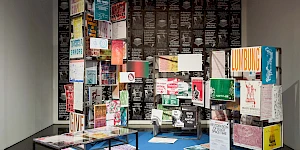
An ephemeral experiment in which the ground floor of MACBA becomes a stage for encounters, conversations and shared listening.
-
5 Jun 2024 Museo Reina SofiaPalestine Is Everywhere
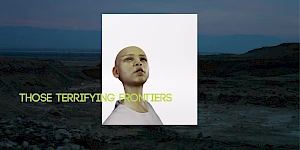
‘Palestine Is Everywhere’ is an encounter and screening at Museo Reina Sofía organised together with Cinema as Assembly as part of Museum of the Commons. The conference starts at 18:30 pm (CET) and will also be streamed on the online platform linked below.
-
23 Jan 2025 HDK-ValandBook Launch: Collective Study in Times of Emergency, Gothenburg
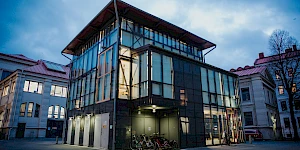
with Nick Aikens (L'Internationale Online / HDK-Valand) and Mills Dray (HDK-Valand), 17h00, Glashuset
-
28 Jan 2025 Moderna galerijaBook Launch: Collective Study in Times of Emergency, Ljubljana
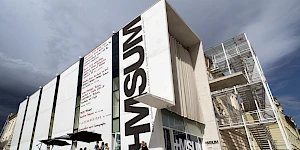
with Nick Aikens (L'Internationale Online / HDK-Valand), Bojana Piškur (MG+MSUM) and Martin Pogačar (ZRC SAZU)
-
27 Nov 2024 WIELSBook Launch: Collective Study in Times of Emergency, Brussels
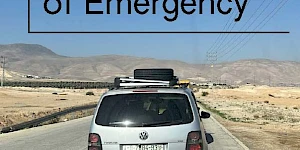
with Nick Aikens (L'Internationale Online / HDK-Valand), Subversive Film and Alex Reynolds, 19h00, Wiels Auditorium
-
10 Oct 2025 –18 Jan 2026 Kyiv Biennial 2025
L’Internationale Confederation is a proud partner of this years’ edition of the Kyiv Biennial.
-
6 Nov 2025 –6 Apr 2026 MACBAProject a Black Planet: The Art and Culture of Panafrica

Curated by MACBA director Elvira Dyangani Ose, along with Antawan Byrd, Adom Getachew and Matthew S. Witkovsky, Project a Black Planet: The Art and Culture of Panafrica is the first major international exhibition to examine the cultural manifestations of Pan-Africanism from the 1920s to the present.
-
13 Jun 2025 –21 Sep M HKAThe Geopolitics of Infrastructure

The exhibition The Geopolitics of Infrastructure presents the work of a generation of artists bringing contemporary perspectives on the particular topicality of infrastructure in a transnational, geopolitical context.
-
10 Nov 2025 –16 Nov MACBAMuseo Reina SofiaSchool of Common Knowledge 2025
The second iteration of the School of Common Knowledge will bring together international participants, faculty from the confederation and situated organisations in Barcelona and Madrid.
-
25 Mar 2025 NCADBook Launch: Collective Study in Times of Emergency, Dublin

with Nick Aikens (L'Internationale Online / HDK-Valand) and members of the L'Internationale Online editorial board: Maria Berríos, Sheena Barrett, Sara Buraya Boned, Charles Esche, Sofia Dati, Sabel Gavaldon, Jasna Jaksic, Cathryn Klasto, Magda Lipska, Declan Long, Francisco Mateo Martínez Cabeza de Vaca, Bojana Piškur, Tove Posselt, Anne-Claire Schmitz, Ezgi Yurteri, Martin Pogacar, and Ovidiu Tichindeleanu, 18h00, Harry Clark Lecture Theatre, NCAD
-
8 May 2025 –9 May Collective Study in Times of Emergency, Amsterdam
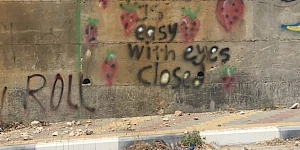
Within the context of ‘Every Act of Struggle’, the research project and exhibition at de appel in Amsterdam, L’Internationale Online has been invited to propose a programme of collective study.
-
25 Apr 2025 Museo Reina SofiaPoetry readings: Culture for Peace - Art and Poetry in Solidarity with Palestine
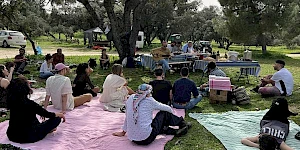
Related contributions and publications
-
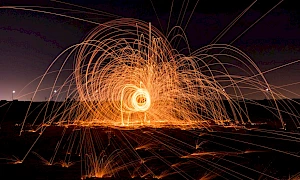
…and the Earth along. Tales about the making, remaking and unmaking of the world.
Martin Pogačar14 Nov 2023 ... and the Earth alongClimatePast in the Present -
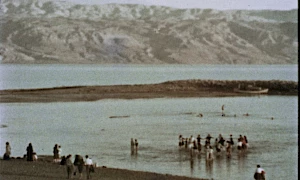
The Kitchen, an Introduction to Subversive Film with Nick Aikens, Reem Shilleh and Mohanad Yaqubi
Nick Aikens, Subversive Film13 Jul 2023 lumbungPast in the PresentVan Abbemuseum -
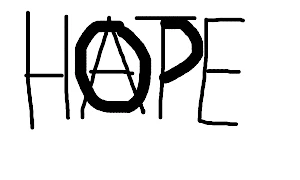
The Repressive Tendency within the European Public Sphere
Ovidiu Ţichindeleanu6 Dec 2023 Towards Collective Study in Times of EmergencyPast in the Present -
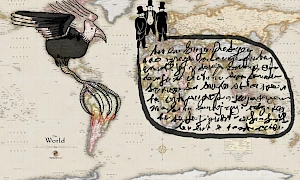
Troubles with the East(s)
Bojana Piškur22 Jan 2024 Towards Collective Study in Times of EmergencyPast in the Present -
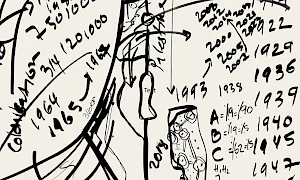
Right now, today, we must say that Palestine is the centre of the world
Françoise Vergès21 Dec 2023 Towards Collective Study in Times of EmergencyPast in the Present -
Body Counts, Balancing Acts and the Performativity of Statements
Mick Wilson20 Dec 2023 Towards Collective Study in Times of EmergencyPast in the Present -
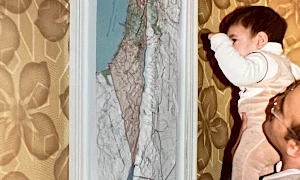
Until Liberation I: Learning Palestine
Learning Palestine Group8 Dec 2023 Towards Collective Study in Times of EmergencyPast in the Present -
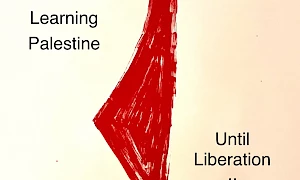
Until Liberation II: Learning Palestine
Learning Palestine Group12 Jan 2024 Towards Collective Study in Times of EmergencyPast in the Present -
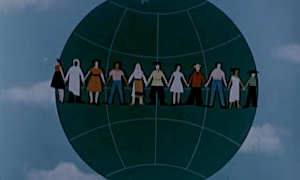
The Veil of Peace
Ovidiu Ţichindeleanu31 Oct 2023 Past in the Presenttranzit.ro -
Editorial: Towards Collective Study in Times of Emergency
L’Internationale Online Editorial Board29 Nov 2023 Towards Collective Study in Times of EmergencyStatements and editorialsPast in the PresentEN es sl tr ar -
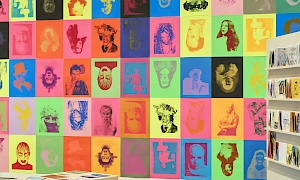
Opening Performance: Song for Many Movements, live on Radio Alhara
Jokkoo with/con Miramizu, Rasheed Jalloul & Sabine Salamé23 Feb 2024 Towards Collective Study in Times of EmergencySonic CommonsPast in the PresentMACBAEN es -
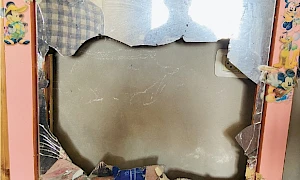
We Have Been Here Forever. Palestinian Poets Write Back
Rana Issa4 Mar 2024 Towards Collective Study in Times of EmergencyPast in the PresentEN tr ar -

Indra's Web
Vandana Singh1 Mar 2024 ... and the Earth alongPast in the PresentClimateZRC SAZU -
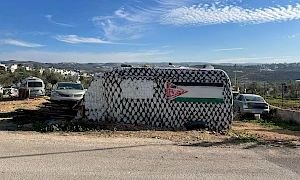
Diary of a Crossing
Baqiya and Yu’ad27 Mar 2024 Towards Collective Study in Times of EmergencyPast in the Present -
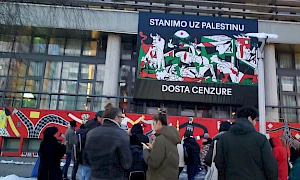
The Silence Has Been Unfolding For Too Long
The Free Palestine Initiative Croatia11 Apr 2024 Towards Collective Study in Times of EmergencyPast in the PresentSituated OrganizationsInstitute of Radical ImaginationMSU Zagreb -
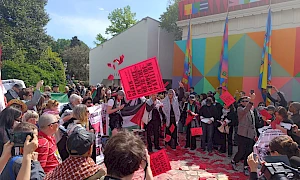
One Day, Freedom Will Be
Françoise Vergès, Maddalena Fragnito19 Apr 2024 Art for Radical Ecologies ManifestoTowards Collective Study in Times of EmergencyInstitute of Radical ImaginationClimate -
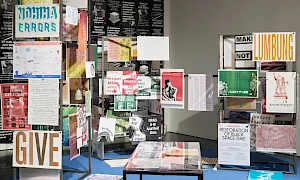
Everything will stay the same if we don’t speak up
L’Internationale Confederation17 Apr 2024 Towards Collective Study in Times of EmergencyStatements and editorialsPast in the PresentSituated OrganizationsEN ca -

War, Peace and Image Politics: Part 1, Who Has a Right to These Images?
Jelena Vesić14 May 2024 Past in the PresentZRC SAZU -
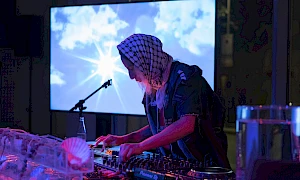
Live set: A Love Letter to the Global Intifada
Precolumbian13 Jun 2024 Towards Collective Study in Times of EmergencySonic CommonsPast in the PresentMACBAEN es -
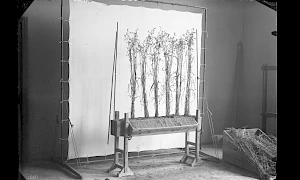
Cultivating Abundance
Åsa Sonjasdotter28 Jun 2024 The Climate ForumClimatePast in the Present -
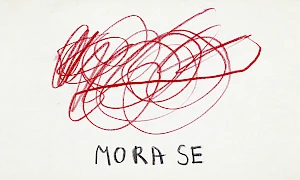
Reading list - Summer School: Our Many Easts
Summer School - Our Many Easts6 Sep 2024 Past in the PresentModerna galerija -
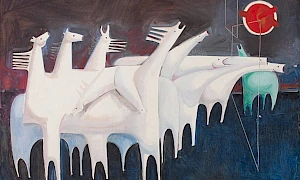
The Genocide War on Gaza: Palestinian Culture and the Existential Struggle
Rana Anani10 Sep 2024 Towards Collective Study in Times of EmergencyPast in the Present -
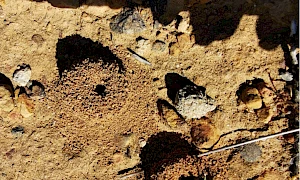
Eating clay is not an eating disorder
Zayaan Khan17 Sep 2024 The Climate ForumRecette. Reset. Recipes in and Beyond the InstitutionClimatePast in the Present -
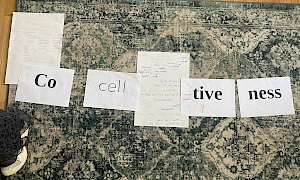
Dispatch: ‘I don't believe in revolution, but sometimes I get in the spirit.’
Megan Hoetger20 Sep 2024 Past in the Present -
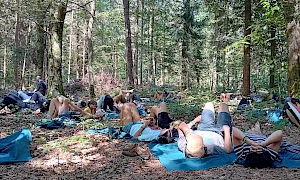
Dispatch: Notes on (de)growth from the fragments of Yugoslavia's former alliances
Ava Zevop24 Sep 2024 Past in the Present -
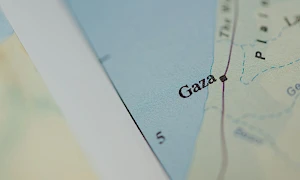
Forget ‘never again’, it’s always already war
Martin Pogačar3 Oct 2024 Towards Collective Study in Times of EmergencyPast in the PresentZRC SAZU -
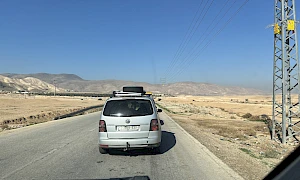
Broadcast: Towards Collective Study in Times of Emergency (for 24 hrs/Palestine)
L’Internationale Online Editorial Board, Rana Issa, L’Internationale Confederation, Vijay Prashad16 Oct 2024 Towards Collective Study in Times of EmergencySonic Commons -
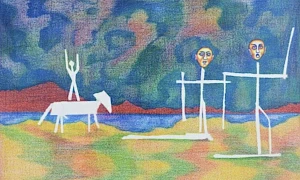
Beyond Distorted Realities: Palestine, Magical Realism and Climate Fiction
Sanabel Abdel Rahman14 Nov 2024 Towards Collective Study in Times of EmergencyPast in the PresentClimate -

Collective Study in Times of Emergency. A Roundtable
Nick Aikens, Sara Buraya Boned, Charles Esche, Martin Pogačar, Ovidiu Ţichindeleanu, Ezgi Yurteri15 Nov 2024 Towards Collective Study in Times of EmergencyPast in the PresentSituated Organizations -

Present Present Present. On grounding the Mediateca and Sonotera spaces in Malafo, Guinea-Bissau
Filipa César27 Nov 2024 Past in the Present -
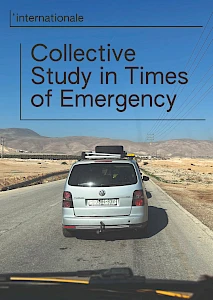
Collective Study in Times of Emergency
2024 Towards Collective Study in Times of EmergencyPast in the Present -
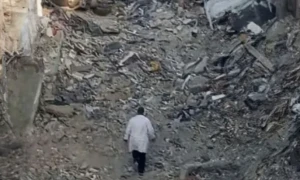
S is for Silence
Maddalena Fragnito13 Jan 2025 Towards Collective Study in Times of EmergencySituated OrganizationsEN it -
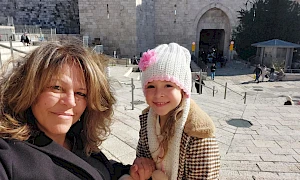
Milad: The Birth of a Dream and Its Continuation
Sanaa Salameh20 Jan 2025 Towards Collective Study in Times of EmergencyPast in the PresentEN ar -
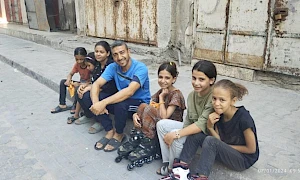
The Library and the Massacre: A Novelist's Testimony on the Destruction of Libraries in the Gaza Strip
Yousri al-Ghoul20 Jan 2025 Towards Collective Study in Times of EmergencyPast in the PresentEN ar -

Black Archives: Episode I. Radical Internationalism and Pan-Africanism in the context of the Spanish Civil War
Tania Safura Adam5 Feb 2025 Past in the PresentEN es -

Re-installing (Academic) Institutions: The Kabakovs’ Indirectness and Adjacency
Christa-Maria Lerm Hayes14 Feb 2025 Past in the Present -
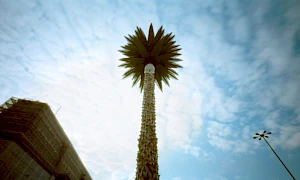
A Date Palm Against the Re-Deportation of Parables, or Europe’s Palestine Monument
Robert Yerachmiel Sniderman8 Apr 2025 Towards Collective Study in Times of EmergencyPast in the PresentMSNEN pl -

Mass Student Protests in Serbia: The possibility of different social relations
Marijana Cvetković, Vida Knežević31 Mar 2025 Past in the PresentEN rs